Earphones
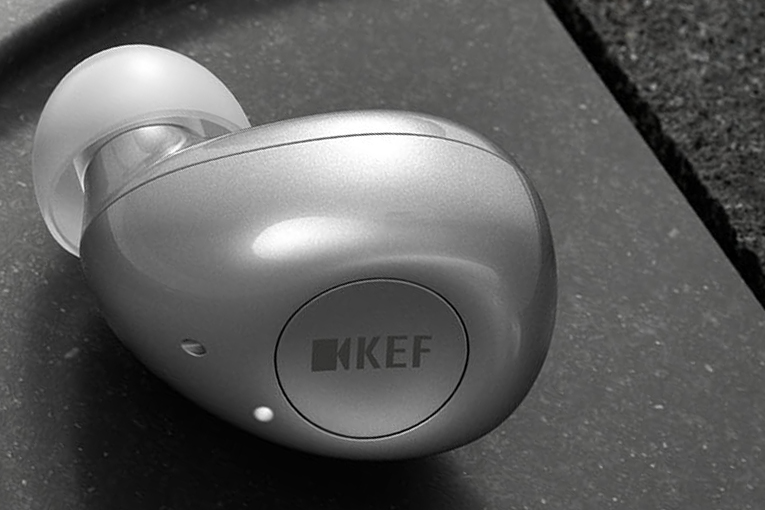
- Details
- Written by: Brent Butterworth
Sound: 









Value: 









(Read about our ratings)
Measurements can be found by clicking this link.
Lots of companies make speakers and headphones, but with most, it’s hard to see the connection between the two. That’s certainly not the case with the KEF Mu3 true wireless earphones, which are styled by Ross Lovegrove, the same guy who did KEF’s iconic, polished-metal Muon loudspeaker. The Mu3s have nothing in common with the Muon technically, but the products share a sleek, silvery style.
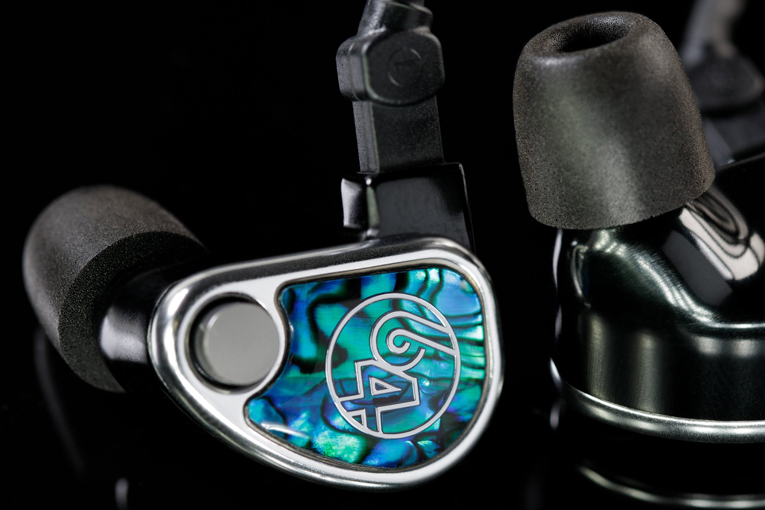
- Details
- Written by: Brent Butterworth
Sound: 









Value: 









(Read about our ratings)
Measurements can be found by clicking this link.
I’m glad that the 64 Audio Nio earphones ($1699 USD) incorporating a whopping nine drivers per ear isn’t the most interesting thing about them. Because if it were, then I’d have to get all whooped up about nine drivers when I know that earphones with just one driver can achieve extraordinary sound. But I think the other technologies packed into the Nios are more worthy of attention.
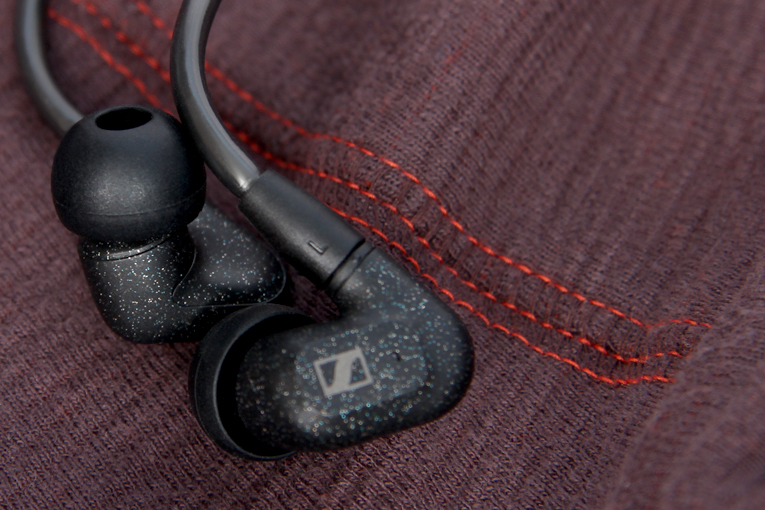
- Details
- Written by: Brent Butterworth
Sound: 









Value: 









(Read about our ratings)
Measurements can be found by clicking this link.
One thing I love about earphones is that you can get state-of-the-art sound in lots of different ways. You can pack an earphone with multiple drivers and a crossover. You can explore exotic driver designs. Or you can tune a basic dynamic driver to near perfection. With the IE 300s ($299, all prices USD), Sennheiser takes the third—and, I think, riskiest—path.
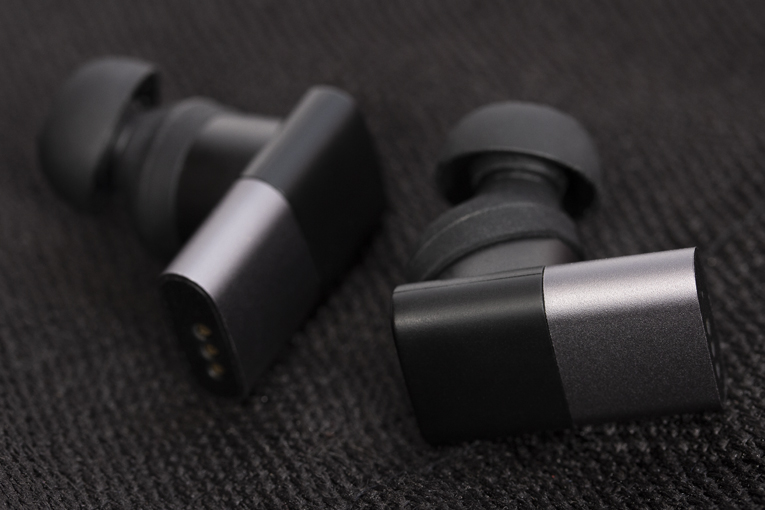
- Details
- Written by: Brent Butterworth
Sound: 









Value: 









(Read about our ratings)
Measurements can be found by clicking this link.
Sonically, true wireless earphones are in the same place that passive earphones were ten years ago: all over the map. One reason passive earphones improved is that manufacturers embraced multidriver, hybrid designs, which let them combine the powerful bass of dynamic drivers with the detailed, natural-sounding mids and treble associated with balanced armatures. We’re starting to see the same thing now in true wireless designs. The first hybrid true wireless earphones I reviewed were the Soundcore Liberty 2 Pros, which combine an 11mm dynamic driver with a single balanced armature, although to rather mixed results. Now we have the Status Audio Between Pro earphones, which use a 10mm dynamic driver with two balanced armatures. The Between Pros are available through an Indiegogo offering at an “early bird price” of $99 and a list price of $169, with a projected ship date in April.
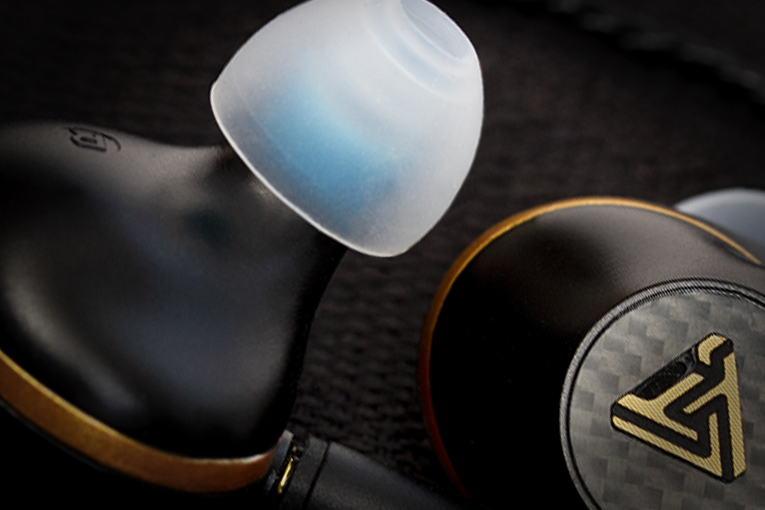
- Details
- Written by: Brent Butterworth
Sound: 









Value: 









(Read about our ratings)
Measurements can be found by clicking this link.
 You gotta admit that Audeze sticks to its guns. To the best of my memory, it’s the only major headphone manufacturer that uses planar-magnetic drivers exclusively. That wouldn’t be so impressive if the company only made headphones, but it makes planar-magnetic earphones, too. I gushed over the sound of the iSine 10 earphones, but to me they’re really kind of a shrunken version of Audeze’s open-back headphones. The new Euclid earphones ($1299 USD) are more dazzling, at least in concept—they’re closed-back earphones with an 18mm (roughly 11/16″) planar-magnetic driver. Yet they don’t look any larger—or any different, really—from typical high-end earphones. So these are something radically new for Audeze.
You gotta admit that Audeze sticks to its guns. To the best of my memory, it’s the only major headphone manufacturer that uses planar-magnetic drivers exclusively. That wouldn’t be so impressive if the company only made headphones, but it makes planar-magnetic earphones, too. I gushed over the sound of the iSine 10 earphones, but to me they’re really kind of a shrunken version of Audeze’s open-back headphones. The new Euclid earphones ($1299 USD) are more dazzling, at least in concept—they’re closed-back earphones with an 18mm (roughly 11/16″) planar-magnetic driver. Yet they don’t look any larger—or any different, really—from typical high-end earphones. So these are something radically new for Audeze.

- Details
- Written by: Brent Butterworth
Sound: 









Value: 









(Read about our ratings)
Measurements can be found by clicking this link.
We tend to think of Grado as a maker of high-end headphones (and phono cartridges), but for decades, the company has offered great-sounding, inexpensive models such as the $99 (all prices USD) SR80e open-back headphones, which often win comparison tests in mainstream publications. So I wasn’t too surprised to see Grado launch a true wireless model, the GT220 earphones. But while the GT220s ($259) are clearly aimed at a broader demographic than most of Grado’s products, they’re designed with the intent of delivering the same distinctive listening experience that Grado fans love—and that some headphone enthusiasts don’t love.
- Shure Aonic 5 Earphones
- Technics EAH-TZ700 Earphones
- Technics EAH-AZ70W True Wireless Earphones
- EarFun Air True Wireless Earphones
- EarSonics Stark Earphones
- EarSonics Purple Earphones
- Edifier TWS6 True Wireless Earphones
- JVC HA-FW01 Earphones
- oBravo Cupid Earphones
- Atlantic Technology FS-HAL1 Earphones
- Meze Audio Rai Penta Earphones
- Soundcore Liberty 2 Pro True Wireless Earphones
- EarFun Free True Wireless Earphones
- Simgot EK3 Earphones
- Ausounds AU-Flex ANC Bluetooth Earphones
- MEE Audio MX4 Pro Earphones
- HiFiMan TWS600 True Wireless Earphones
- Periodic Audio Carbon Earphones
- Campfire Audio IO Earphones
- Cambridge Audio Melomania 1 True Wireless Earphones
- Simgot EN700 Pro Earphones
- 1More E1026BT-I Stylish True Wireless Earphones
- Sennheiser Momentum True Wireless Earphones
- Akoustyx R-220 Earphones
- Campfire Audio Solaris Earphones
- Acoustic Research AR-E010 Earphones
- Fidue A85 Virgo Earphones
- PSB M4U TW1 Bluetooth Earphones
- Sennheiser HD 1 Free Bluetooth Earphones
- Campfire Audio Comet Earphones
- Massdrop x NuForce EDC3 Earphones
- Monoprice Monolith M300 Earphones
- Brainwavz B200 Earphones
- 1More Quad Driver Earphones
- Audeze iSine10 Earphones
- Audiofly AF1120 Earphones
- Optoma NuForce HEM8 Earphones
- Focal Sphear Earphones
- Klipsch Reference X20i Earphones
- RBH Sound EP3 Earphones
- PSB M4U 4 Earphones
- Phiaton MS 100 BA Earphones
- Marshall Headphones Mode EQ Earphones
SoundStage! Solo is part of
All contents available on this website are copyrighted by SoundStage!® and Schneider Publishing Inc., unless otherwise noted. All rights reserved.
This site was designed by Karen Fanas and the SoundStage! team.
To contact us, please e-mail info@soundstagenetwork.com




